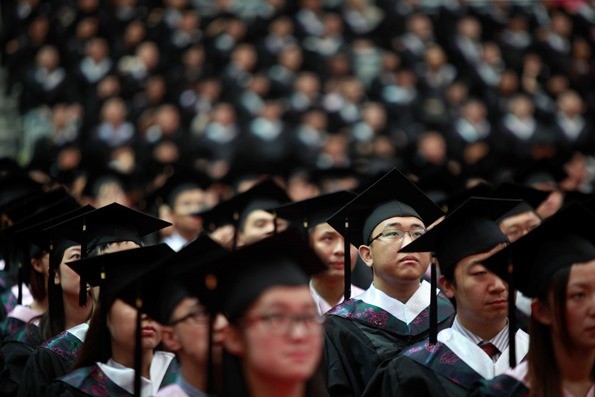A surge of Chinese high school students are going abroad to pursue education overseas in order to avoid the study time involved in preparing for the National College Entrance Exam or the Gaokao.
China Internalization think tank reported that 274,439 Chinese students are enrolled in U.S. schools in the school year of 2013-14, an increase by 16.5 percent from the previous year.
Operator of international curriculum programs edulife.com.cn, a Shanghai-based online platform, told news website Shanghai Daily that the applications for studying overseas increased by 10 times.
In countries like the U.S., Britain and Australia, overseas students have been big business for years. They pay higher tuition than local students, and there is no shortage of them to help fill budgetary gaps. Not content to just woo foreign students to their shores, many overseas educational institutions are setting up affiliates in China to tap the hunger for foreign diplomas, Shanghai Daily reported.
Li Gang, manager of the Edulife website, said that some parents who send their teenage sons and daughters abroad find that young people have trouble living independently away from home.
"Living and studying abroad is much more expensive than in China," he said. "Most international curriculum programs here charge around 100,000 yuan a year, while tuition and living expenses overseas could be twice that amount," he added.
The tuition for overseas education can be 50 times higher than in China.
Chinese students are attracted to pursue international education because international programs do not require their students to have a high school admission exam.
International studies have a more relaxed education system compared to China.
"My son goes to bed at midnight after finishing all his daily homework, and then he has to get up 6 a.m. every day to go to school," said a mother surnamed Zhu, who has a 12th-grade child.
International programs have more choices for subjects and the school work is not onerous compared to Chinese schools, and the assignments encourage students to research independently and improve their use of the English language.



























